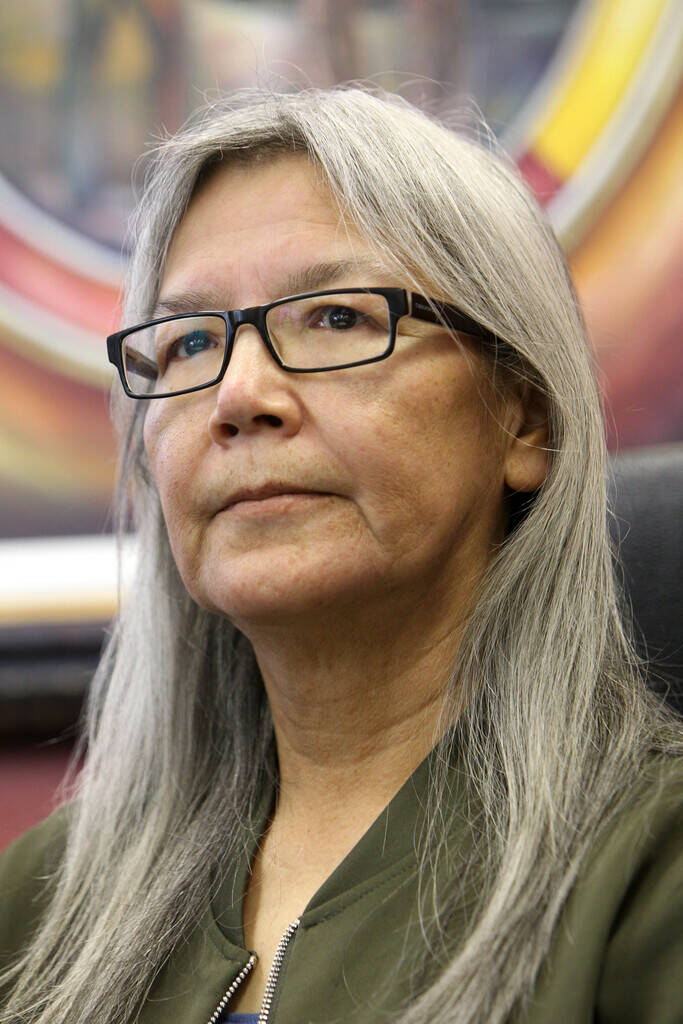Conservative leader candidate Poilievre floats oil-via-Churchill idea
Advertisement
Read this article for free:
or
Already have an account? Log in here »
To continue reading, please subscribe:
Monthly Digital Subscription
$0 for the first 4 weeks*
- Enjoy unlimited reading on winnipegfreepress.com
- Read the E-Edition, our digital replica newspaper
- Access News Break, our award-winning app
- Play interactive puzzles
*No charge for 4 weeks then price increases to the regular rate of $19.00 plus GST every four weeks. Offer available to new and qualified returning subscribers only. Cancel any time.
Monthly Digital Subscription
$4.75/week*
- Enjoy unlimited reading on winnipegfreepress.com
- Read the E-Edition, our digital replica newspaper
- Access News Break, our award-winning app
- Play interactive puzzles
*Billed as $19 plus GST every four weeks. Cancel any time.
To continue reading, please subscribe:
Add Free Press access to your Brandon Sun subscription for only an additional
$1 for the first 4 weeks*
*Your next subscription payment will increase by $1.00 and you will be charged $16.99 plus GST for four weeks. After four weeks, your payment will increase to $23.99 plus GST every four weeks.
Read unlimited articles for free today:
or
Already have an account? Log in here »
Hey there, time traveller!
This article was published 04/04/2022 (1307 days ago), so information in it may no longer be current.
OTTAWA — The Conservative party leadership front-runner has revived longstanding calls to ship oil from the Port of Churchill, an idea that remains controversial in northern Manitoba.
“The Port of Churchill could be a potential port to transport our energy,” Pierre Poilievre told a Winnipeg rally Saturday.
“Here in Manitoba, we have some very exciting possibilities if we can remove the gatekeepers,” said Poilievre, whose campaign did not reply when asked whom he’s referring to as gatekeepers.

The Ontario MP also argued a pipeline from Alberta’s oilsands to Churchill could carry up to 200,000 barrels daily. If elected prime minister at some point, he said he’d launch consultations with First Nations, while issuing pre-approval for export licenses to ship oil.
“What stands in the way of these projects is excessive regulation and many delays,” Poilievre said.
Yet, the idea of shipping oil through northern Manitoba has long had local push back.
“It’s the same thing we were concerned about years ago,” said War Lake First Nation Chief Betsy Kennedy, whose community sits along the Hudson Bay Railway linking Churchill to the south.
“If there’s ever a derailment and there’s any oil spillage, we’re just worried how that’s going to affect the land and the rivers when that happens.”
The railway’s former owner, Omnitrax, had sought to ship oil through its port but faced vehement opposition from the Keewatin Tribal Council, environmentalists and Manitoba’s former NDP government, especially after the deadly oil-train derailment in Lac-Mégantic, Que., in July 2013.
The idea also got renewed push back from the Churchill Chamber of Commerce in 2017, after railway washouts led Alberta politicians to argue oil shipments could finance the line’s reconstruction.
Kennedy sits on the board of Arctic Gateway Group, the local consortium that took over the railway and port in 2018.
Poilievre’s campaign did not contact the consortium ahead of his promise Saturday. However, the group’s head, Sheldon Affleck, said he’s open to Poilievre’s pitch. “The board is 100 per cent supportive of any safe initiative at the port of Churchill,” he wrote Monday.
When Arctic Gateway took over in late 2018, consortium leaders said the port could be used for agricultural goods and potash, and possibly oil and gas if the rail bed was more secure. The group has since funded upgrades with an aim of reducing the number of derailments along its thawing permafrost, and replaced aging fuel tanks at the port.
Affleck argued Monday oil shipments could be facilitated through Canapux, a nascent technology that stores bitumen puck-shaped capsules covered in a polymer. The capsules are deemed much less volatile, even designed to float on water, until they arrive at a processor abroad to separate the polymer from the bitumen.

He said the railway has lacked stable business from a steady commodity since the 2015 dissolution of the Canadian Wheat Board.
“Grain is not ideal because it requires last year’s crop for most of the volume,” Affleck said, noting the harvest wraps up just as the port closes for the winter. “Grain can piggyback nicely on any other core business (but is) extremely difficult to do on its own consistently in a free market.”
Manitoba Justice Minister Kevin Goertzen voiced his support for the idea, “because he loves Churchill and wants to see it thrive.”
Churchill Mayor Mike Spence declined an interview request Monday.
For years, the town 1,000 kilometres north of Winnipeg has followed an economic strategy that calls for increased use of the port and railway, but was ambivalent on how natural resources would fit into that picture. Part of the strategy is a strong focus on eco-tourism and environmental research.
Local media reported Poilievre had filled the TYC Event Centre to its 600 capacity, plus an overflow room of 1,800 registrants at the adjacent Tavern United.
dylan.robertson@freepress.mb.ca
History
Updated on Monday, April 4, 2022 8:36 PM CDT: Updates reference to Leslyn Lewis campaign event in Steinbach.



